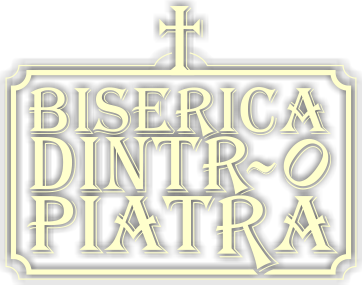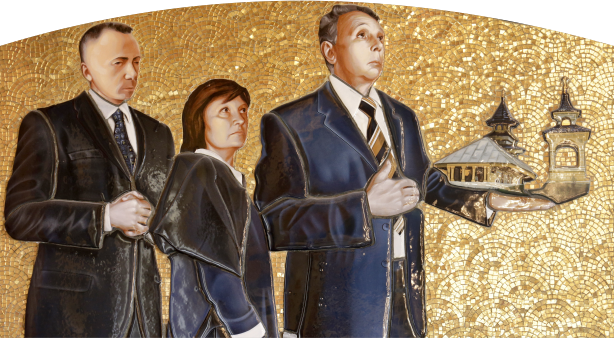The Orthodox Church has, in addition to the 10 commandments God has left to Moses, and 9 commandments the “clerics” that the believers should respect. The 9 religious commandments would be based on the Holy Scripture, but also The Tradition of the Church, and were formulated in the present form during the period of Peter Modest who recorded them in the “Orthodox Confession,” the confession approved by the Sinodus from Iasi in 1642. According to the Orthodox Dehism these regulations are called church commandments and are new. This is how each of them is interpreted, according to the teaching of faith:
1. To obey the Holy Liturghye with a lavage every Sunday and celebrate This command is obliging the Christian to daily prayer, and on the holiday days to take part in the holy jobs ordained by our Holy Orthodox Church.
This command is obliging the Christian to daily prayer, and on the days of celebration to take part in the holy jobs ordained by our Holy Orthodox Church.
2.We hold all the fastes over the year.
The commandment of the fast is found in the Holy Scripture. But the time for the fulfillment of this duty is determined by the Church, by this commandment. The fast is a suitable means to curb evil lusts, to overcome temptations and sins, as well as to persevere in pure prayer.
3. Honor the clerics.
This commandment teaches that it is the duty of the Christian to give honor to those who are part of the priestly state, because they are ministers of the holy altars, preachers of the divine word and prayers to God. In particular, this honor is appropriate to the spiritual, who instructs the Christian in the seat of the Holy Confession and which, with the power received from God, gives him the release of sins.
4. Let us confess and share in each of the four great positions over the year, or, if we cannot, at least once a year, in the position of Holy Passover.
The fourth church commandment, therefore, shows the duty of the Christian to confess his sins before the spiritual, in order to be untied from them and to be able to share with the Holy Body and Blood of the Savior, for the attainment of eternal happiness. This commandment also asks the sick after the body to cleanse their souls of sins through the Sacrament of Holy Confession and to receive Holy Communion, but first to receive the Sacrament of the Holy Man.
5. Pray for our overseers.
This commandment teaches that it is the duty of the Christian to pray to God for help for all who care for his eternal and eternal good. Thus, the Church asks us to pray for the patriarch, the metropolitan or eparchial bishop and the whole clergy, for the rulers of the country and for all those who do good in the Holy Church and strive to strengthen the Orthodox faith.
6. To hold the positions that the bishop or metropolitan of the place would hold, in times of danger, disease or distress.
In certain circumstances, the bishops of the place have the right and duty to arrange special days of fasting and prayer, and Christians have the duty to keep them with all their heart's purity, for their own benefit. While St. Peter the Apostle was locked up by Herod, "there was continual prayer to God for him, by the Church" (Acts 12: 5) and the angel of the Lord delivered him.
Let's not read the books of heretics.
Our holy Orthodox Church, having from God the call to guide Christians on the path of righteous teaching, has a duty to draw their attention to all things that might deviate from this path. Thus, by this commandment he asks those who are not strengthened in the knowledge and understanding of the divine word to refrain from reading books contrary to true faith.
8. Let us not alienate, nor use for foreign purposes, the things of the church or the wealth of the Church.
The alienation of these things or their use for their own sake, therefore, brings harm to the Church, and to those who are guilty of such acts, it is sin, for the divine commandment says: "Do not steal."
9. Do not make weddings and celebrations or other parties during the fasts.
The church has arranged certain days for Christians to celebrate the most significant events in the life of the Savior and the saints. These, being some of joy, and others of sorrow, it is good to note that the former will be feasted with soul joy, and the others with sorrow and bodily and soul braking. By this commandment, the Church asks the Christian that in the days of sorrow shown by her, on fasting days, she should not celebrate parties, which are an occasion for joy and, generally, not to take part in joys and pleasures.









